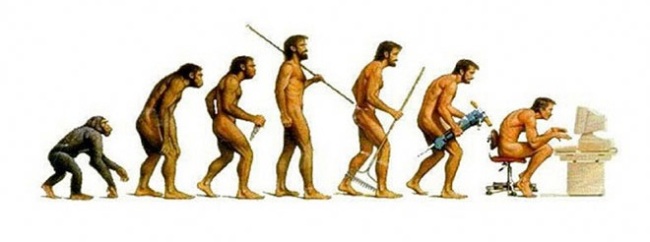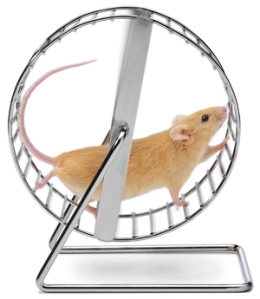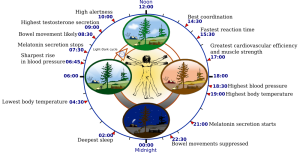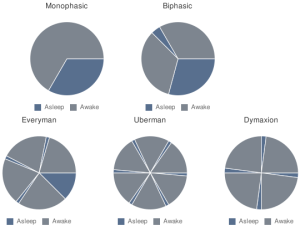 As an anthropologist, life becomes embroiled in comparision. Everything must have an alternative context through which we can seek an empathetic or critical glance at a range of aspects relating to what it means to be human. In other words, things are not stable, but constantly in flux – our systems of thought, our political, religious, ideological processes of expansion or containment. We adhere to principles of non-adherance. We do this through a set of (fluid) methodologies which (we believe) enable us to contemplate humanity through holistic understandings. Long-term fieldwork, the sine qua non of the discipline, remains the tried and tested approach to the challenges of alterity, or what we can gauge by comparing the drastic or subtle nuances involved in fundamental human practices. We think, we move, we love, we fight, we create, we acquiesce, we are born, we die, we interact, we destroy, and we seek meaning through a variety of sources. This is what makes the human species so fascinating – different approaches to the mundane, different outcomes – or maybe not. Maybe the longue duree of evolution has become so daunting, that to us, this reflection and its acceptance, thrusts us into increasingly confined spaces where we seek solace in our fear of this awareness and the challenges life presents?
As an anthropologist, life becomes embroiled in comparision. Everything must have an alternative context through which we can seek an empathetic or critical glance at a range of aspects relating to what it means to be human. In other words, things are not stable, but constantly in flux – our systems of thought, our political, religious, ideological processes of expansion or containment. We adhere to principles of non-adherance. We do this through a set of (fluid) methodologies which (we believe) enable us to contemplate humanity through holistic understandings. Long-term fieldwork, the sine qua non of the discipline, remains the tried and tested approach to the challenges of alterity, or what we can gauge by comparing the drastic or subtle nuances involved in fundamental human practices. We think, we move, we love, we fight, we create, we acquiesce, we are born, we die, we interact, we destroy, and we seek meaning through a variety of sources. This is what makes the human species so fascinating – different approaches to the mundane, different outcomes – or maybe not. Maybe the longue duree of evolution has become so daunting, that to us, this reflection and its acceptance, thrusts us into increasingly confined spaces where we seek solace in our fear of this awareness and the challenges life presents?
Yes, the anthropologist is the Leatherman philosopher. At once aware of diversity, applying a set of tools in order to unlock life´s mysteries, but always aware of the fragility of their construction, and the imminency of their potential reconstitution.
For most, reflection, and an openness to tackle such fundamental questions relating to ´what it means to be human?´ and ´how might things be different?` are challenges far greater than the confines of a sheltered life of fear or ´comfort´ provide. The great philosophers, stretching back to Plato and Aristotle, all knew this and most subsequent thinkers have sought (albeit in contrasting ways) to unravel these questions, and shed light on humanities´ desire to approach, but mostly avoid, their direct experiential appraisal through action (trial and error). In a contemporary setting, people shy away from questioning their beliefs, their choices, their actions out of fear for the apparent insecurities that will eventuate; What if s/he is not right for me? Is this career fulfilling? Do I believe in science and/or superstition? Is what I am putting in my mouth doing me more harm than good? Could a change in approach unlock certain anxieties that have prevented me from doing z, y or z? The list is endless – as are the possibilities we have for being more human.
People, again in a contemporary sense, reveal signs of what it means to be human, but from within the enclosed space of their anxieties. People are becoming caged animals, yet another tragic case of apes trapped in a sanctuary – made invisible by the ´freedom´of facebook profile updates telling ´the world´of their daring, their dexterity, their knowledge, and their visions through a photo of a plate of chicken and vegetables. People ´travel´ to the far corners of the globe (or the closest place with sun and cheap beer) for their ´experience´of diversity, unwittingly forging their further isolation through reinforcing unreflective dichotomies of ´difference´ – Oh, they we so poor, but all smiling. We helped them out by volunteering, showing them how they can escape poverty and now sponsor a family – it´s so great to be making a difference… etc. Yet back on safe ground, people climb back into their sanctuaries, slumping into their Ikea sofas, updating their profiles, filling themselves with sugar and HFCS, doing as the state tells them to do – reveling in the glory of wealth and hypermodernity.
 Freedom, as a fundamental instinct of the antropos, lies elsewhere. It is unbound. It lies not in a set of flow charts or indexes keeping us in a pseudo state of harmony – Oh how lucky we are!
Freedom, as a fundamental instinct of the antropos, lies elsewhere. It is unbound. It lies not in a set of flow charts or indexes keeping us in a pseudo state of harmony – Oh how lucky we are!
Freedom exists outside any paradigms that cushion our increasingly flabby backsides and stress/diet-related illnesses. Freedom is a curiosity that leads to further awareness of our potentials as a species to live a life of co-existence in the vast glory of our global ecoscape. Freedom is not confined to those with the means to purchase a ticket to fly to the world´s ends. Nor is it limited for those severely inhibited by such structural constrains as war, and tyranny. It exists within a mindset and a moving body. Freedom is not an idealistic realm of the kombucha drinking yoga practitioner. Humans are but a minor aberration when seen from afar, at the mercy of our environments, garnished as we are, with this remarkable opportunity to participate in our stage in evolution. It makes acts of sloth, of adherence to commercialized ´wisdom´, to greed and ignorance of contrasting ways of life, to uncritical use of “better-worse”, “us-them”, or an early retirement of our exponential range of mental, physical and emotional capacities – all seem like such a slight on the winning lottery ticket we have been dealt to share in the vastness of our interconnected pathway. Our ancestors started to get things right, yet we´ve regressed.
Anthropology today works diligently at protecting this diversity, yet struggles to break free of its philosophical grounding in a world of Red Bull-fuelled instant gratification. The pregnancy of life´s meaning struggles to resonate when we turn to so-called scientific “truths” – uncritically rendered to us through multiple medias, states, and religious doctrines – each with their own projects of containment. You see, modern society is becoming constructed through an architecture of containment. We are being watched by big brother from all corners, whether we like it or not. Any attempts to stand outside the boundaries of “normality” will attract unwanted attention (and we´ll cease to get liked on facebook). This suits our further containment, despite our sanctuaries appearing in glossy magazines as expressions of our freedoms.
People need (a more public) anthropology. It remains stuck within itself however, an ironic isolation from the very tenants of the freedom and manifold it seeks to portray.
We can all be anthropologists. We don´t need an academic straightjacket. We are all indeed philosophers. There are no rules to this. We have it in us to seek knowledge, understanding and wisdom – but this only eventuates through an awareness and an openness to the fact that we are all unique, only as a species sharing the same planet, with similar desires for a “good life” – but lacking the tools to break free from our confined zoological warehouses.
Great people only become iconic figures because they dare to try (and fail) where others fear. Beautiful movement, creative thought, empathy, love, work, curiosity and our unique capacities to amaze lie alongside our ability to hate, our obesity, our prejudice and our constant social media updates.
It´s the process that separates the eventual outcomes.
We are all unique apes and we could all do with stopping our lazy-arse ways reflecting upon how things might and could be and getting stuck into the pathways that lead us ahead.








